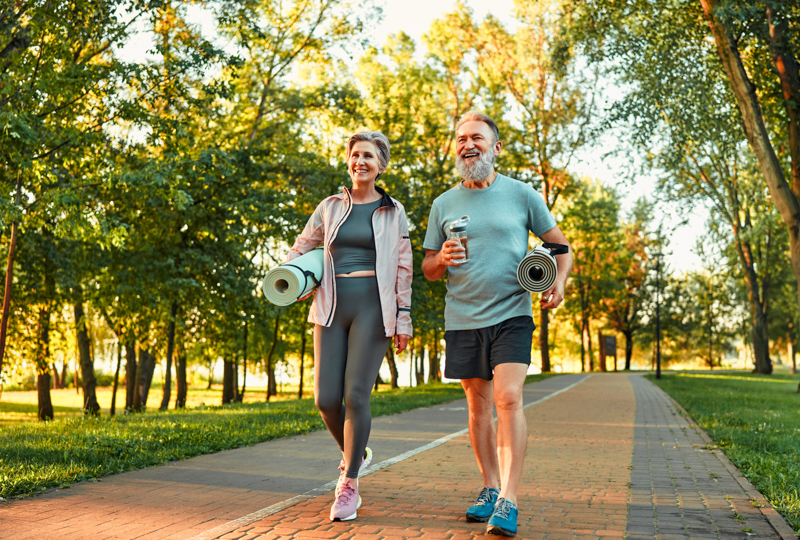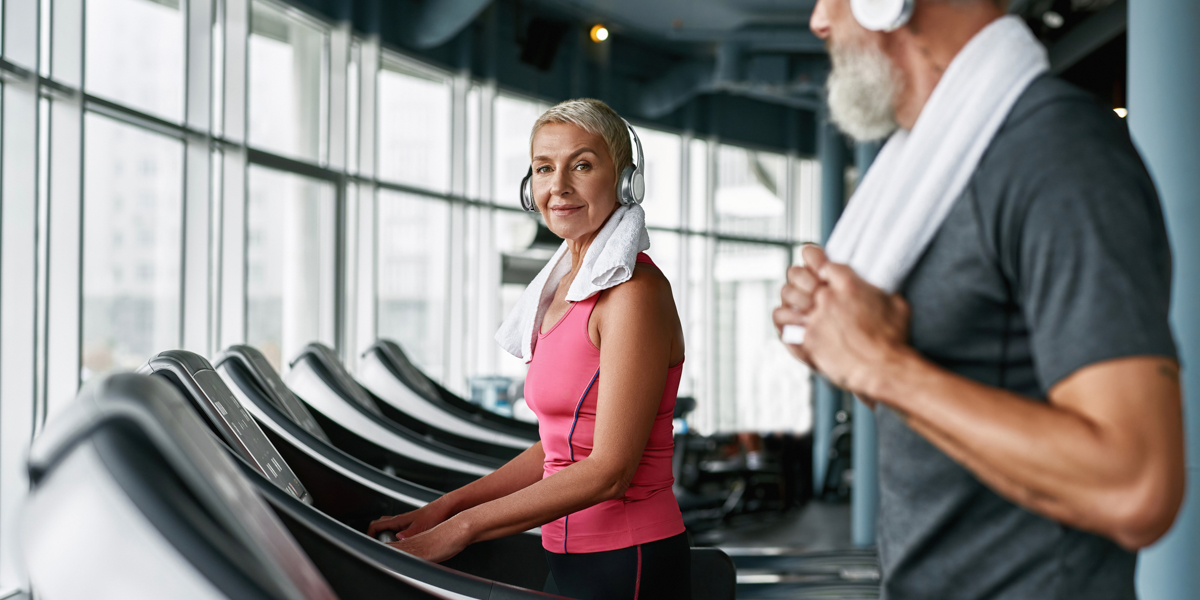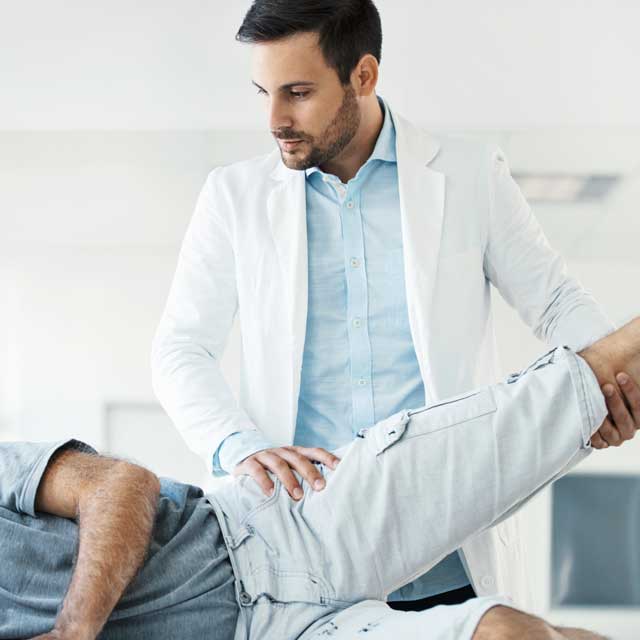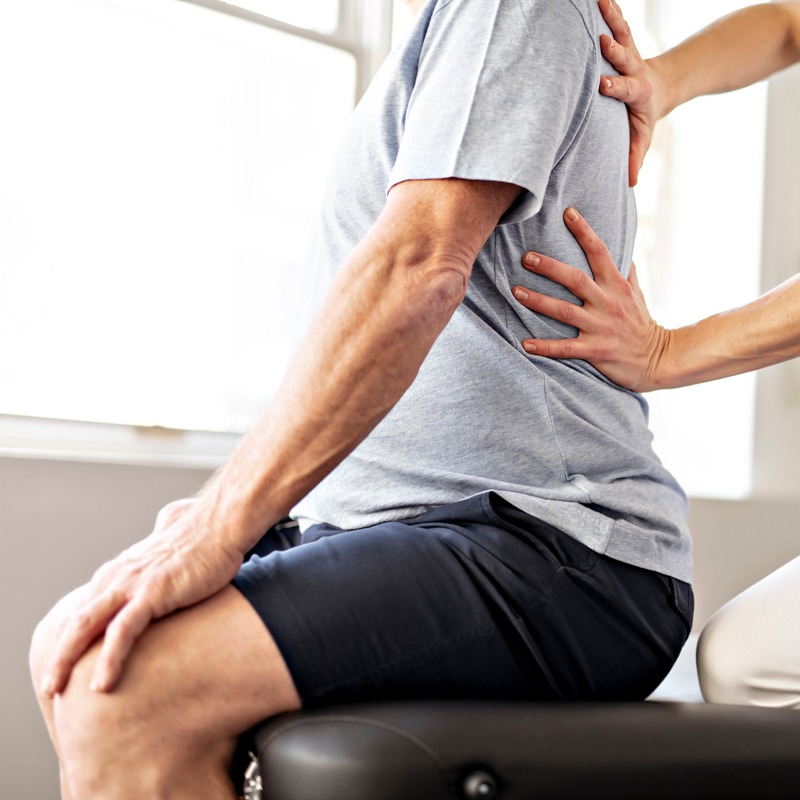Stay moving despite osteoarthritis by learning safe joint movements, setting your home up for easy access and embracing gentle movement exercises.
Osteoarthritis can make every day physical tasks seem daunting. Your joints can become stiff and achy, and daily tasks that were previously easy may feel impossible.
Ironically, movement is helpful for easing osteoarthritis symptoms over the long term, but physical activity can seem like the last thing you want to do when your symptoms are at their worst. Our experts offer tips to protect your joints from further damage, arrange your home to support your needs and keep your body moving.
Frequent stretching to maintain or improve range of motion is important. “This improves function and may help reduce mental distress you experience when you feel too dependent on others,” said Dr. Eric Bowman, a shoulder surgeon with Vanderbilt Orthopaedics.
Lift while keeping your joints safe
Be cautious when lifting significant weight, as this may make symptoms worse. Lift items with both hands and ask for help or try assistive tools that can make life easier. “When lifting objects, be sure to hold them close to your body, not with an outstretched arm. Avoid repetitive overhead activities,” Bowman said.
Also, be aware of your posture. “Don’t let your neck and shoulders droop forward; a few times per hour, pull your head back and pull your shoulder blades together in the back.”
Make your home work better for you
Arrange the contents of cupboards, closets, desks and drawers in a way that will minimize the amount of reaching and bending you need to do to get ahold of frequently used items.
Arrange furniture to make it safer and easier to get around. Secure or remove rugs, power cords and other items that might trip you or make it easy to slip.
Plan daily activities
Schedule your day and week so that it works best for you. If you plan in advance, these strategies for osteoarthritis may help:
- Combine errands so that you make fewer trips up and down stairs.
- Divide packages and bags so that you carry less weight with each trip. For example, ask cashiers to use more bags for your groceries.
- If you need help with chores or errands, arrange for regular help in advance.
- If you need to lift something heavy, ask for help.
- Try to use other parts of your body if you have pain in certain joints.
Other helpful tips for performing tasks around the house
Sometimes you will feel like you just need a break. To rest your hands, back and neck:
- Keep knives sharp, so you don’t have to use too much pressure to chop food.
- In the kitchen, use lightweight dishes, pans and bakeware.
- Use a “reacher” or “grasper” tool to grasp items.
- In the shower or bath, use soap-on-a-rope and a long-handled scrubber.
To rest your knees, hips, and lower back:
- Wear shoes that feel good, fit well and provide good support.
- Choose chairs with firm seats and armrests.
Specific products that can help:
- Attach larger handles to keys.
- Use helpful gripping devices for opening jars.
- For gardening, use a rolling bench to sit on or to hold your tools. Use tools with padded handles.
- In the bathroom, try using grab bars, a raised toilet seat or a shower seat.
- A cane, brace or walker may help you walk more easily. Make sure that it’s properly fitted and that you’re trained to use it. For knee braces, depending on where the osteoarthritis affects the knee (in the middle or on the sides), an unloader knee brace can help. Ask your orthopedist if one would help your knee.
Exercise helps the whole body
Even though aches and stiffness from osteoarthritis will often make you feel like you don’t want to move, physical activity is key to maintaining your health. It can even reduce the pain you feel in your joints.
“Studies have also shown the closer you are to ideal body weight, the better your hip and knee will feel if you have osteoarthritis in those joints,” said Dr. Paul Rummo, a sports medicine orthopedist with Vanderbilt Orthopaedics. He recommends frequent low-impact aerobic exercise to patients with osteoarthritis: walking, biking, using an elliptical trainer, swimming, water aerobics and/or a rowing machine.
Whole-body resistance (strength) training helps tone the low back, core, hip and knee, which in turn provide better support to the hips and knees. Stretching exercises also help strengthen muscles that support and protect the joints. Stretching can help increase your joints’ range of motion and reduce stiffness.
“Exercises like yoga and tai chi can help improve balance, posture and coordination and can reduce falls,” Rummo said.

Need relief from joint pain?
If you are dealing with an injury, preparing for surgery or coping with chronic pain, Vanderbilt Orthopaedics offers a wide range of care. Our specialists work with you from evaluation and “prehab” through physical therapy and, if needed, surgery. We’ll help you get back to doing the things you love, pain-free.




